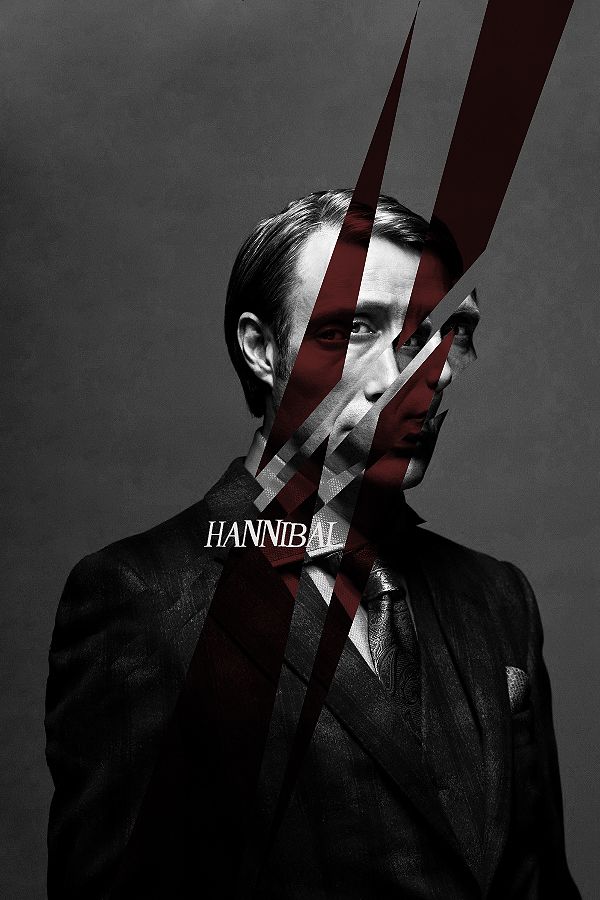
I don't really tend to fangirl about many things, unless I feel they are particularly special. NBC's Hannibal is one of those very special things. We came in fairly late in the game, as this was something that I'd heard of, and had been meaning to watch, but was put aside for Breaking Bad and Game of Thrones. In the space between other shows, I finally decided to try Hannibal, and boy, I'm so glad I did.
The first two seasons (and likely the third) of Hannibal take place in an alternate universe before Red Dragon - which had only covered the story once Hannibal had been caught and in prison. In the show, Hannibal is working as a psychologist, long before Clarice Starling. In Red Dragon, Will Graham only meets Hannibal shortly before he catches him, as opposed to the long relationship the two have in the show. Although the majority of the storylines in the show are unique, they reconstruct Thomas Harris' tones extremely well, and some even have nods to the books (such as the introduction of the Vergers in season 2). Lines from the book are faithfully injected into the show ("It feels like I'm talking to his shadow, suspended on dust") without being jarring, only noticeable if you've read the books.
After devouring the two seasons of the show so far, I stated reading the book series (I'm currently on the third book, Hannibal), which are well worth the read, especially if you like thrillers. But in this post I thought I'd ramble on about the many reasons why the show has really captured my imagination!
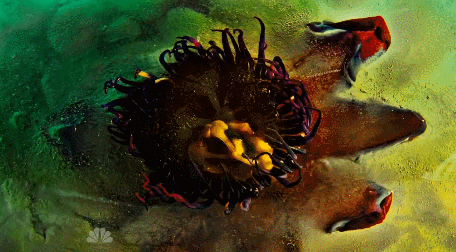
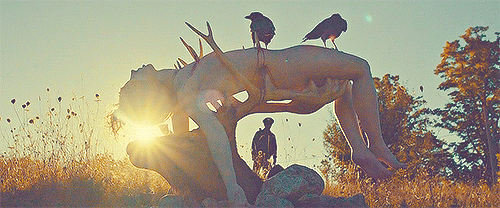
Exquisite cinematography.
Hannibal is quite literally a feast for the eyes. Not just the fastidiously constructed shots, although these are the ones that will etch themselves on your mind, but the entire show takes immense care with every scene. The colour palette is considerably well thought-out, from how a wall contrasts clothing, or how a shade of blue might reflect the turmoil of a character's mind. Symmetry is deployed in a similar vein to Kubrick (cited as one of the show's inspirations, along with David Lynch, both of which you can see clearly throughout).
One thing that sets Hannibal apart from it's ilk, is that the horror of death is offset with the most stunning tableau shots, much like a Vanitas painting. Macro and close up shots of the food being prepared by Hannibal is designed to be mouth-watering, shocking considering the implication of what the "meat" comprises of. By employing the skills of a food stylist, artist Janice Poon (she has a great blog here), these shots are able to stand alone as incredibly beautiful objets d'art.
It's also worth noting that the (wonderful) Hannibal fanbase includes a lot of absolutely beautiful fanart!
A male protagonist who is flawed and fragile.
Think about how often you've seen a male protagonist who is depicted as damaged and doesn't overcome his flaws. Will Graham is treated, as noted by Hannibal in one of the first episodes, as a "delicate tea cup, only used for special guests". It's rare that a male character would need to rely so heavily on those around him, particularly women. His sexual advances are denied due to his fragility, and his whole persona seems a lot more realistic than many male leads (another male character that also goes against the norm is Walter White from Breaking Bad).
Another interesting note is that many of the female characters have been gender swapped from their counterparts in the books; Alana/Allen Bloom, Freddie/Freddy Lounds. The books themselves feature what I would consider, an extremely strong feminist character in the form of Clarice Starling, so it is refreshing that this has been considered in the show.
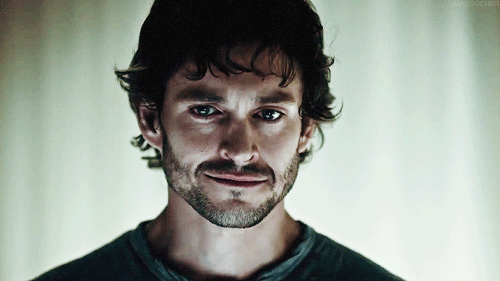
Writing
As the audience we are well aware (it's also revealed to us in the first episode) that Hannibal is dangerous, and so it can only be a matter of time before the other characters gain this knowledge. The foreshadowing, mostly from Hannibal's own mouth ("You have to convince yourself the lion is not in the room" and "I'd love to have you both for dinner" comments) gives a playful hint as to what is to come. Re-watching the first season with the knowledge of how everything develops, especially Will and Hannibal's increasingly complicated relationship, is interesting. The use of metaphors are subtly used throughout the 2 seasons without being hammy, while the overarching story has obviously been constructed with meticulous care.
Actors.
There isn't one bad performance in the entire show, even from actors I wouldn't normally consider to be top rate (such as Eddie Izzard, whose performance is a good homage to Anthony Hopkins' Hannibal). The majority of the actors were unfamiliar to me, or hadn't been in any large productions, but they stand alongside such great performers as Laurence Fishburne. Mads Mikkelsen and Hugh Dancy are incredibly strong as Hannibal and Will, with Mads portraying the cannibal as well as, dare I say better than, Anthony Hopkins.
Sound design.
One of the more surreal aspects of the show, to compliment the visual style, is the sound design. There are many scenes in which dialogue is put aside; not guiding the audience along by pointing out the obvious, but allowing the audio space and often ominous soundtrack to do the work. The soundtrack is slightly different for each episode, for example, Season 1, Episode 2 has a bubbling, slightly nauseating sound for the mushroom killer, while Verdi and Mozart is used dramatically throughout Season 1, Episode 7. I remember in particular, the sound throughout season 2, when Will is at his most fragile, is extremely evocative.
Wardrobe.
Oh my god the suits. Hannibal is well-known to enjoy the finer things in life, from wines to cars, so his wardrobe would definitely need to be a priority. And boy, does the wardrobe department follow through.
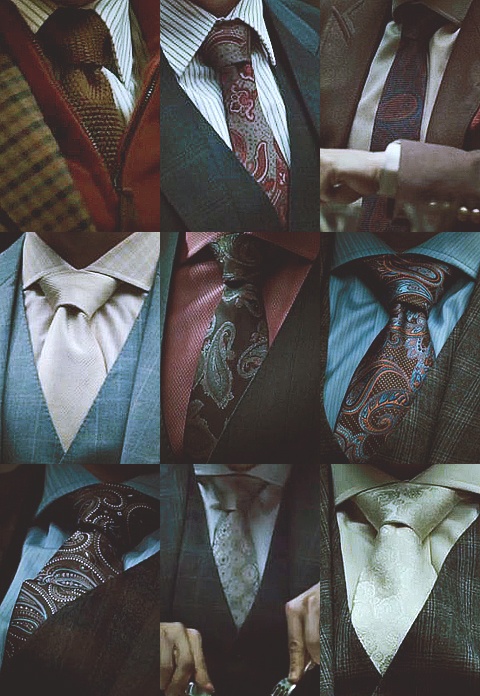
The theme of mental illness.
So often in media, mental illness is portrayed in a negative way, and phrases like "he's crazy" have entered our everyday lexicon. With the main theme on the show being psychology, in particular the psychology of the mentally ill, it would have been easy for a group of careless writers to treat mental illness as a monster. Without glorifying, Hannibal delves into the complex minds of fictional killers, via Will Graham's empathetic mind.
From the outset, Will's state of mind is put into question, with Crawford asking him where he falls on the Autism spectrum, to which he responds, "My horse is hitched to a post that is closer to Aspergers and Autistics". Will has particular trouble with social situations, an issue that many people struggle with. As his taxing tasks effect his already fragile mind, the audience is given a glimpse of what it may be like to suffer in such a way, allowing us a glimpse of how complex the human mind can be. Not only is Will's psychology laid out on the table, but some of the other characters are shown as flawed and, at times, unstable. One of the reasons why Freddie Lounds is such a distasteful character is that she encourages the view that Will Graham is "crazy" and therefore shouldn't be around Abigail Hobbs (evidentally she didn't notice the real monster in the room). As I said, this could have so easily fallen into the spectrum of media that encourages an unhealthy view of mental illness, but Bryan Fuller's team have created something special that deals with these themes in a mature and complex way.
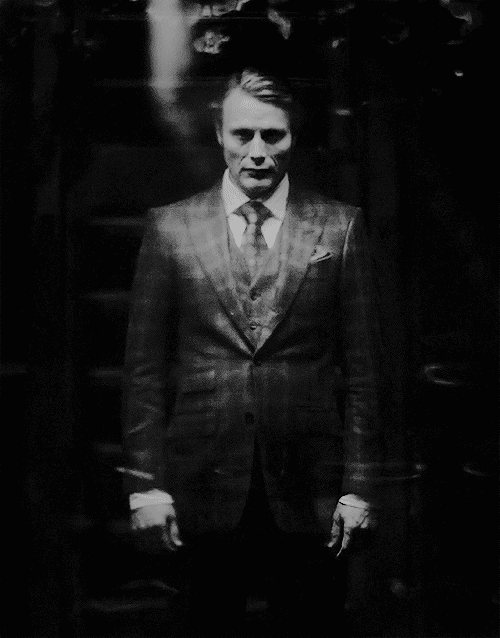
In short, I highly recommend giving Hannibal a watch, as it far surpasses many other television shows currently being aired.
Have you watched Hannibal, if so, which aspects did you enjoy the most?